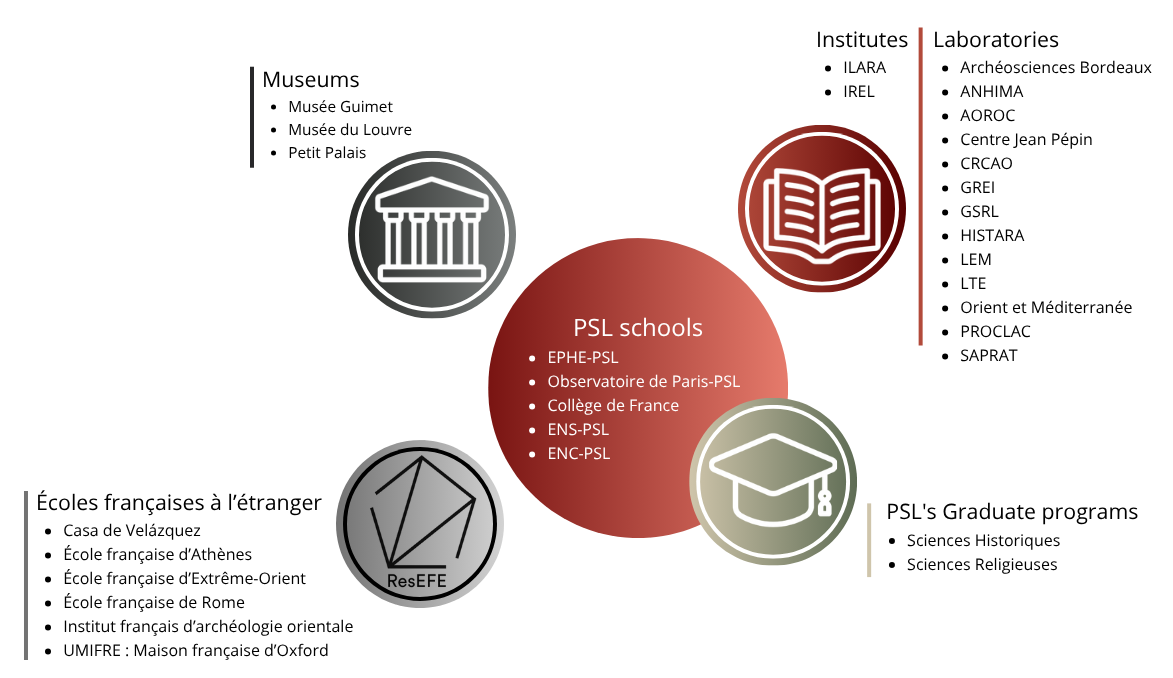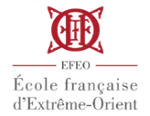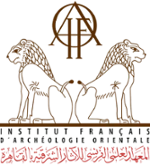Discover FAn
The research program “The Making of Antiquity” (FAn) is dedicated to the study and analysis of the formation of collective identities, cultural memories, and modes of historicity in ancient societies from all cultural areas and all historical eras.
FAn thus examines the constructions and representations of ancient times not only in modern and contemporary societies, but also already within the ancient societies themselves. In a dynamic that breaks away from Eurocentrism, ancient societies are studied from a global perspective, exploring their chronological depth and interconnections.
Ancient worlds are not approached as the traditional subjects of “Classical Studies,” but rather as matters of successive appropriations, constructions, and rewritings, driven by shifting contemporary contexts—whether ancient or modern—and rooted in concrete, stratified material conditions. Reflecting FAn’s reflexive dimension, outreach to the broader public—both as a practice and as a subject of critical inquiry—is an integral part of the program.
The program will be structured along three research axes:
- the construction of time and the various issues involved: periodization, modes of historicity, etc;
- the construction and representation of ancient times not only in modern and contemporary societies, but also in ancient societies themselves;
- the linguistic shaping of the world: languages and scripts as historical objects.
In all these areas, FAn aims for a global approach to the historical phenomena involved in constructing antiquity, from East Asia to Central America, via India, the Near East and the Mediterranean.
Institutional architecture
FAn brings together scientific expertise from five PSL member institutions, thirteen research laboratories, several major Parisian museums, and the network of the Écoles françaises à l’étranger.

The Research program's institutional ecosystem is made up of several schools from Université PSL: EPHE - PSL, École Normale Supérieure - PSL, Collège de France, l'Observatoire de Paris - PSL et l'École Nationale des Chartes - PSL, Parisian museums such as musée du Louvre, musée Guimet (musée national des arts asiatiques) and Petit Palais. The program also involves the five Écoles françaises à l'étranger: École française d'Extrême-Orient, Casa de Velázquez, École française d'Athènes, École française de Rome and the Institut français d'archéologie orientale au Caire.
 |
 |
 |
 |
 |
 |
 |
 |
||
 |
 |
 |
 |
 |
The GPR draws on scientific expertise in the following research laboratories: Archéosciences-Bordeaux, ANHIMA (Anthropologie et histoire des mondes antiques), AOROC (Archéologie & philologie d'Orient et d'Occident), le Centre Jean Pépin, CRCAO (Centre de recherche sur les civilisations de l'Asie orientale), GREI (Groupe de recherche en études indiennes), GSRL (Groupe Sociétés, Religions, Laïcités), Histara (Histoire de l'art, des représentations et de l'administration en Europe), LEM (Laboratoire d'études sur les monothéismes), le LTE (Laboratoire Temps Espace), Orient et Méditerranée, PROCLAC (Proche-Orient - Caucase) et Saprat (Savoirs et pratiques du Moyen Âge à l'époque contemporaine).
 |
 |
 |
 |
 |
 |
 |
 |
 |
 |
 |
 |
 |
Governance
The governance of the GPR includes the three co-leaders, a Steering Committee (CoPil), and the Scientific Council (SC).
The co-leaders are responsible for achieving the scientific and institutional objectives of the GPR, implementing its budget, and managing both internal and external communication.
The CoPil is composed of the three co-leaders, three coordinators for each research axis, and the project manager. It oversees the scientific and institutional momentum of the GPR according to its three structuring axes, and prepares the annual scientific program and budget, which are submitted to the SC.
The SC serves as the representative body of the GPR and reflects its scientific and institutional reach, particularly through its partnerships with museums and the Écoles françaises à l’Étranger. The SC actively contributes to the development of all initiatives undertaken by the GPR and its partners, reviews the annual scientific program and budget prepared by the CoPil, and issues recommendations and proposals.
